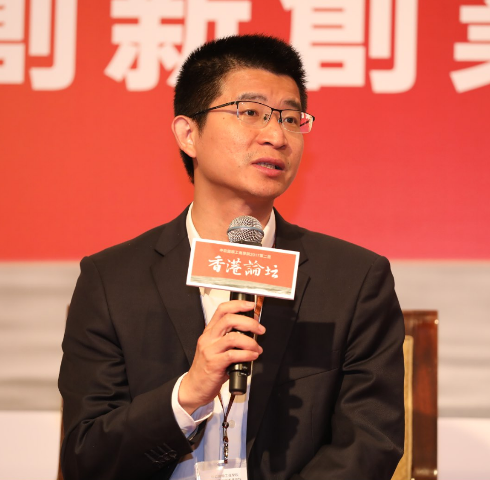Ready to transform smart manufacturing

Neko Chen,
General Manager, Smart Manufacturing Cloud Division, Midea Group
Originally launched to identify projects that could help the Midea Group boost efficiency and lower costs, the company’s Smart Manufacturing Cloud Division has now invested billions in projects that could revolutionise the entire smart manufacturing landscape.
“Midea began its digitalisation transformation from as far back as 2012. We compare our different smart manufacturing models in China and abroad and try to find the best model for the Group. Smart manufacturing is relatively new within Midea, so they are trying to build themselves into a giant in this niche.
Two years ago, Midea came up with an initiative of bringing a comprehensive solution of smartfacturing to traditional manufacturers. The Smart Manufacturing Cloud Division’s product is much more cost-effective than other suppliers; and the Midea Group is one of our largest customers. They have already used our products for two years and I think we can continue this cooperation in the future.
Midea, which is number one in some product categories globally, do not think of themselves as a traditional manufacturer. They have a number of projects that are all about smart manufacturing. Robotics, big data, automation – all these words are very popular inside Midea.
It has also acquired an Israel company which is very strong in automation. So Midea has played the game well and invested a lot of resources in terms of smart manufacturing, although it is a traditional manufacturer. They have also acquired some technology from Germany, from Siemens. They have also got some technology from GE.
We have a long-term plan called the 120 project, which is basically for big data mechanisms. We have built a very detailed strategy for our future manufacturing solutions. And we have invested a lot of money in our smart manufacturing projects. I think these projects have also brought growth to our system, and our efficiency has also been greatly improved.
We have already invested RMB2 billion in these projects.
Originally, we wanted to use solutions from US and European companies, we just tried to learn from them. But for some projects we found that European and US solutions are not very suitable for Chinese companies. China is stronger in terms of traditional manufacturing, much stronger than European and US companies. So if we want to transform China’s traditional manufacturing industry, we need to take a different path from the one taken by the US and Europe.
We need to get rid of this mind-set of just completely adopting the approach used in those countries. Of course we can still learn from them and adjust their products to the Chinese manufacturing environment. On the other hand, US and European companies do not buy into Chinese companies’ method. They do not appreciate our characteristics and strengths. I think we need to attract more talents.
High efficiency, low cost & big data
The original purpose of our projects was to identify solutions for Midea. It was a totally internal project. Our chairman wanted to establish a strategy to reduce cost and increase efficiency. The original purpose was only to provide service to the Midea group. But now I think once our projects are successful, these solutions can also be used by other companies for Chinese manufacturers.
The goal of these projects is to reduce cost, to increase efficiency; something all Chinese manufacturers want. So many companies will find our solutions useful.
Chinese companies must find our own way to match the manufacturing industry with Chinese characteristics. We have acquired some companies and we have also set up strategic partnerships with foreign players. We have also had negotiations with another company about big data.
Big data is very important, but it’s very difficult to utilise. The financial industry already makes very good use of big data but for the manufacturing sector we are not very strong in this regard. Because so much of the manufacturing process is related to tangible items; you cannot only rely on digital data to make decisions.
E-commerce is also developing very fast. For example, last year a great percentage of our sales was online. The online platform provides a different experience to customers. Now we can have very precise marketing aimed at our consumers. We can know the exact reason why a certain product is very popular. This is one of the uses of big data. When we have this kind of data, we can take appropriate action. In the first half of 2017 one of our projects has proven quite useful, even for our employees. So now when our employees go on a business trip they do not take computers, they only take mobile phones with them. They can access our big data system on their phones. We are very willing to share our experience with other Chinese manufacturers.”
Edited excerpts from a panel discussion on Opportunities for Entrepreneurship and Investment in the Smart Manufacturing Industry at CEIBS Hong Kong Forum on April 21, 2017.
Click the links below for more details as they become available on CEIBS Europe Forums in:
London – July 6
Paris – July 11
Munich – September 13
Warsaw – September 15
Zurich – October 18.













